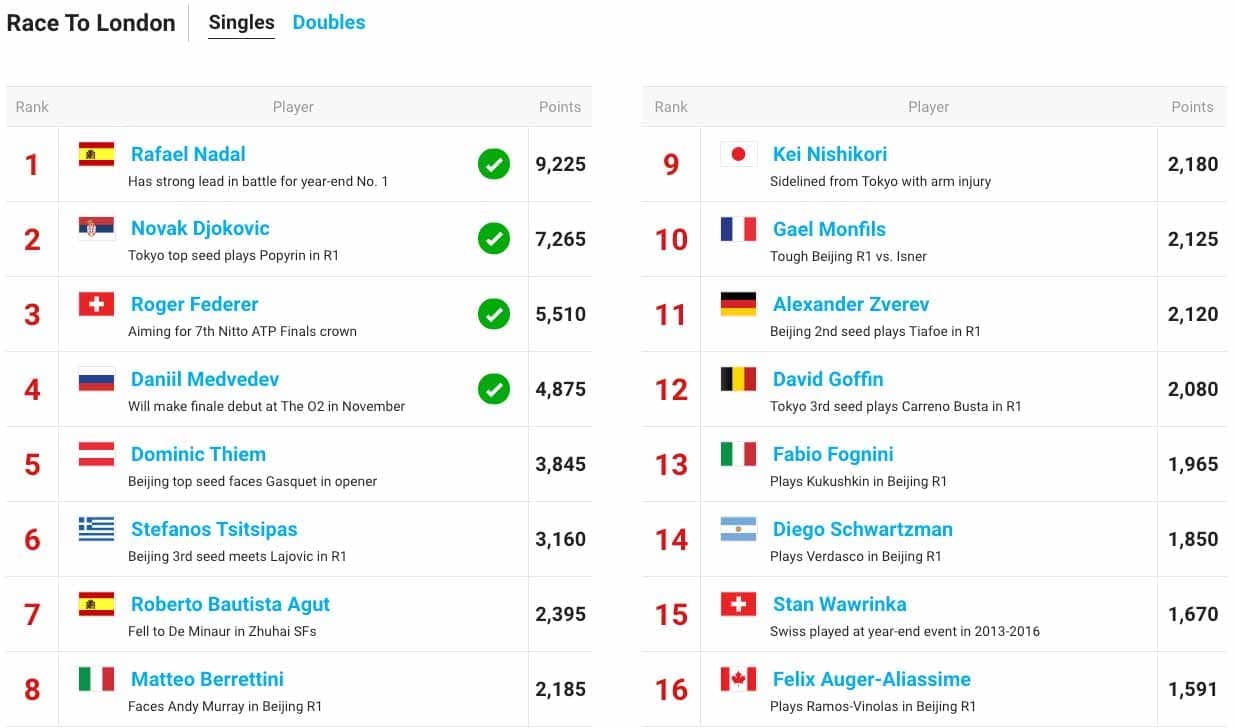Murray: 'Things Are Going In The Right Direction'
Murray: ‘Things Are Going In The Right Direction’
Andy Murray isn’t sure if he’s back to a Top 20 level, but the former World No. 1 admitted his comeback took another massive step on Tuesday at the China Open in Beijing.
The Scot earned his biggest win since undergoing a second hip surgery on 28 January, beating World No. 13 Matteo Berrettini 7-6(2), 7-6(7) to make the second round at the ATP 500.
“I feel like I’m hitting the ball pretty clean,” Murray said. “Things are going in the right direction.”
It is Murray’s biggest win by ATP Ranking since more than 12 months ago, when, in September 2018, he beat No. 11 David Goffin at the Shenzhen Open.
The difference, however, is that last year Murray still felt pain daily in his right hip. This year, as he reminded everyone again on Tuesday, he is still pain-free. “Zero pain in my hip,” he said with a smirk.
Murray began his comeback in August at the Western & Southern Open in Cincinnati, falling to Richard Gasquet in straight sets. He looked tentative and rusty.
“I felt a bit out of place. I didn’t really feel like I was playing at a great level,” he said in Beijing.
Murray played another match at the Winston-Salem Open before playing three more at an ATP Challenger Tour event in Mallorca.
It wasn’t until last week, however, that Murray began showing glimpses of his former level, avenging his Winston-Salem loss to Tennys Sandgren and taking the opening set against eventual Zhuhai champion Alex de Minaur.
“Last week was a really big step for me in terms of how I felt and how I played in the matches,” Murray said. “Although I lost in the second round, I felt like I was playing tour-level tennis. I was competitive. I was in the match, even the one that I lost. Whereas I didn’t feel that in the States. I didn’t feel I was in the matches or playing great tennis.”
He ratcheted up his level against Berrettini, coming forward to finish points and chasing down drop shots that he, out of bad habit, was letting go in Cincinnati.
“In terms of the way that I’m moving now, in comparison to a couple of months ago, just my level of confidence in that is much, much higher than what it was a few months ago,” he said.
But Murray, whose ranking has dipped to No. 503, tempered the bubbling enthusiasm surrounding his win against Berrettini, who is in eighth place in the ATP Race To London and made the US Open semi-finals (l. to Nadal) last month.
The Briton, who is 2-3 in his comeback, hasn’t felt great after matches and is still adjusting to playing two to three matches in a week. Another test looms on Wednesday against countryman Cameron Norrie.
“Now I just need to try and get the matches, get them consistently, so that I’m used to playing three, four matches in a week,” Murray said.
“Right now, at this level, I don’t know if I’m ready to do that or not. So the more I can get through these sort of matches like I did today, I’ll get there a little bit quicker.”




